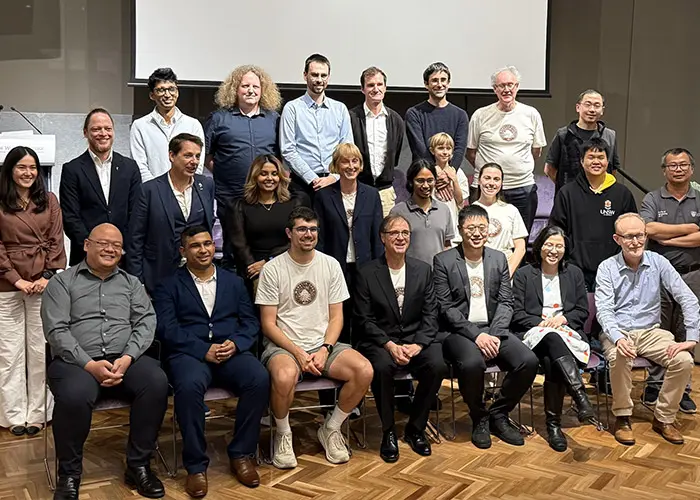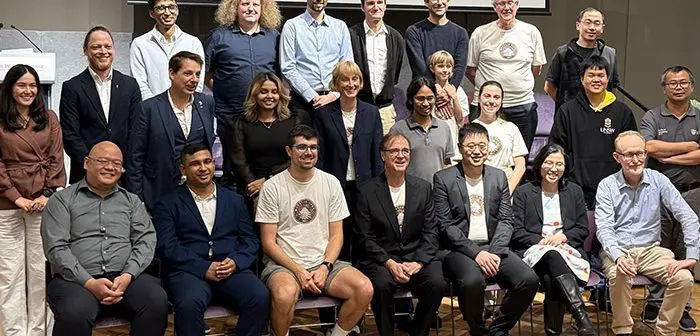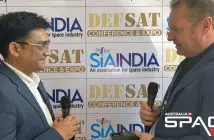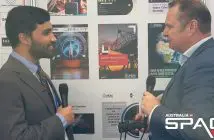
The ARC Industrial Transformation Training Centre for CubeSats, UAVs, and Their Applications (CUAVA) and the Waratah Seed Consortium gathered this week at the University of Sydney to celebrate the success of the Waratah Seed-1 satellite with the Waratah Seed and CUAVA mission teams, mission participants, partners and sponsors.
The Waratah Seed-1 Space Qualification Mission, Australia’s first satellite ride-share mission, is a great success. The satellite’s anticipated mission lifespan is now exceeded, remaining in orbit for over six months and beating the odds that almost two in three small satellites will fail in space.
Eight of the nine technology payloads on board are now operational and have sent data back to Earth via ground-stations at the University of Sydney, Camperdown and Amazon Web Services ground-station near Dubbo.
The satellite and its software were designed, built and tested on campus at the University of Sydney, bringing technology payloads from multiple universities, startups and companies to space.
CUAVA’s Waratah Seed-1 satellite launched and deployed into orbit in August 2024. The project was initiated and co-funded by the NSW Government’s Pilot Space Qualification Mission grant, supported by The Waratah Seed Consortium, a partnership between CUAVA centred at the University of Sydney, ACSER at the University of NSW, Macquarie University, UTS, and commercial Space Industry partners Saber Astronautics and Delta-V NewSpace Alliance.
Key sponsors of the project are the NSW Government, SmartSat CRC, Aurora, and Raytheon Australia.





